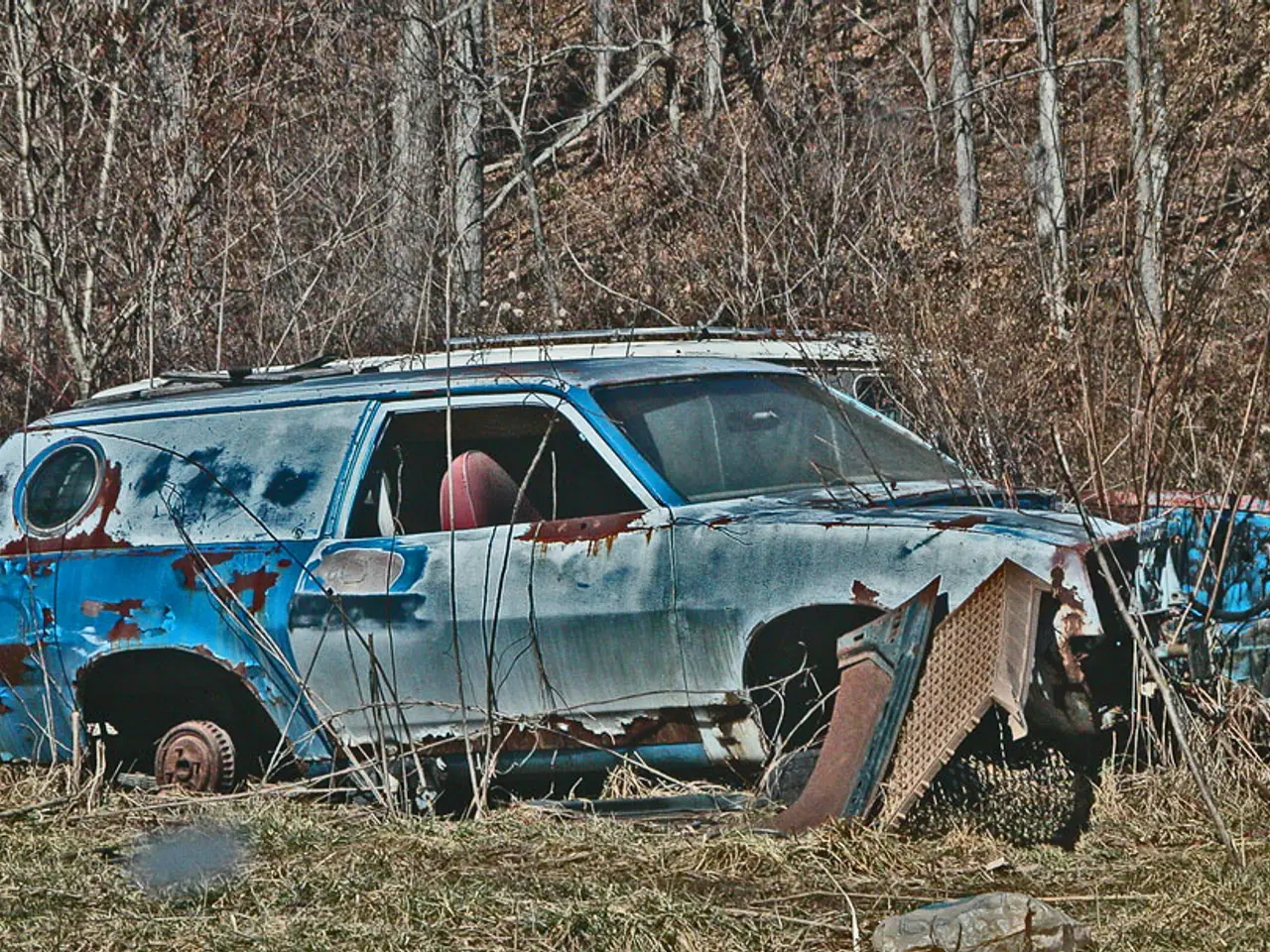Unsolved Enigma and the Challenges Posed by Abandoned Vehicles
In the province of Quebec, the number of abandoned vehicles has seen a significant increase, with a recorded 21,000 such cases reported in 2023. This trend is primarily attributed to increased criminal activities involving vehicles, such as theft and illegal use, followed by abandonment to evade law enforcement [1][5].
Despite a reported drop in auto theft in the first half of 2025, some vehicles are still abandoned after pursuits or criminal events, as exemplified by recent incidents involving fleeing suspects leaving vehicles with firearms and burglary tools [1][5].
This surge in abandoned vehicles negatively impacts local businesses. Obstructing traffic flow and parking availability discourages customers and reduces commercial activity. Additionally, managing removal and disposal of these vehicles creates additional costs for municipalities and local businesses [1][5]. Moreover, the presence of abandoned vehicles can damage the image of commercial areas, reducing foot traffic and consumer confidence.
From an environmental perspective, abandoned vehicles contribute negatively by leaking hazardous fluids such as oil, gasoline, and brake fluids into soil and water sources, contaminating local ecosystems. They also increase waste and pollution through improper disposal or delayed removal, which conflicts with environmental sustainability goals. Furthermore, abandoned vehicles can add to urban blight, which can reduce community investment in environmental upkeep [1][5].
Towing companies, such as Remorquage Météor, have been affected by this increase. For instance, they have had multiple abandoned vehicles in their yard for months without any financial gain. Cases like a Hyundai that was stripped of its wheels, a Tesla in excellent condition abandoned on the streets of Montreal for 156 days, and a Kia Soul with a half-full water bottle, headphones, and Toms shoes, have become common occurrences [1][5].
Moreover, the legal procedure for disposing of an abandoned vehicle takes around 200 days or more, according to Serge Landry. This prolonged process results in hundreds of unclaimed vehicles polluting the land of towing companies due to administrative delays [1][5].
The Association of Quebec Towing Professionals (APDQ), which represents 82% of the province’s towing companies, is negotiating with the Ministry of Transportation to find a solution for compensating towing companies for these unclaimed vehicles. The fees for unclaimed vehicles would be charged to the accounts of the guilty owners, in the form of a fine, according to the APDQ [1][5].
The government is encouraged by the APDQ to take charge and hold vehicle owners accountable for abandoned vehicles. Many Quebecers have abandoned their vehicles due to expensive repairs or uninsured status, compounding the issue [1][5].
In summary, the rise in abandoned vehicles in Quebec relates to continuing criminal misuse despite declining theft rates, and it adversely affects local businesses through disruption and costs, and harms the environment via pollution and waste management challenges [1][5].
Sports enthusiasts face lifestyle challenges due to the growing number of abandoned cars in public parking areas, affecting the availability of spaces for recreational activities. Home-and-garden enthusiasts might also find it difficult to transport gardening supplies or tools due to the obstruction caused by these vehicles. Furthermore, luxury cars, such as the abandoned Tesla, can deter potential buyers who prefer a pristine environment for test driving home-and-garden or sports equipment.




